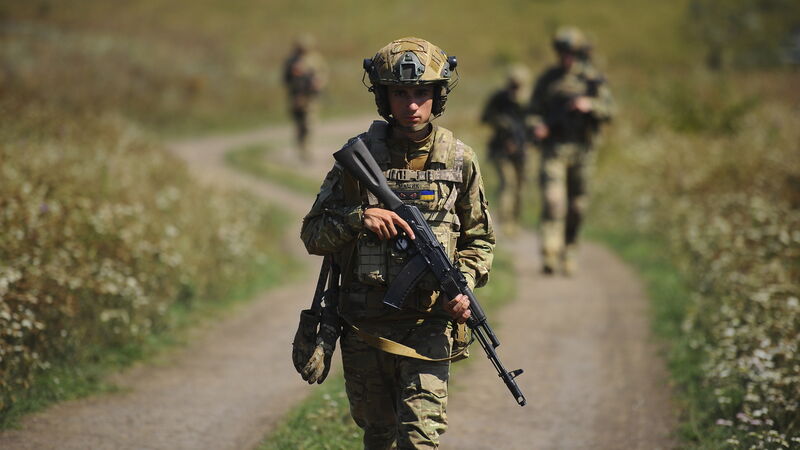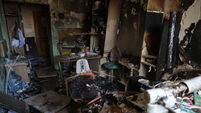Barry Andrews: At the front, it's clear Ireland must continue to support Ukraine

Soldiers practise military skills on a training ground near Kharkiv, Ukraine, in August. Photo: Anatolii Lysianskyi/Ukraine's 127th Separate Brigade via AP
Driving six hours across Ukraine to the eastern city of Kharkiv last Saturday, the sheer vastness of the country is remarkable.
Thousands of hectares of farmland and forestry roll by barely inhabited at all. You start to feel small and fall silent. You are hypnotised by the horizons, imagining there must be enough space for a thousand cities.
















